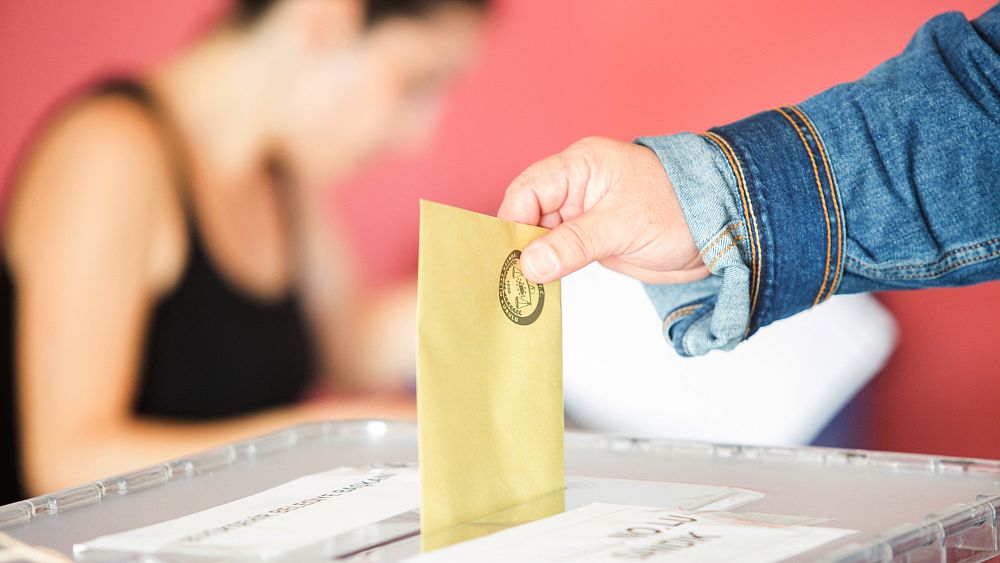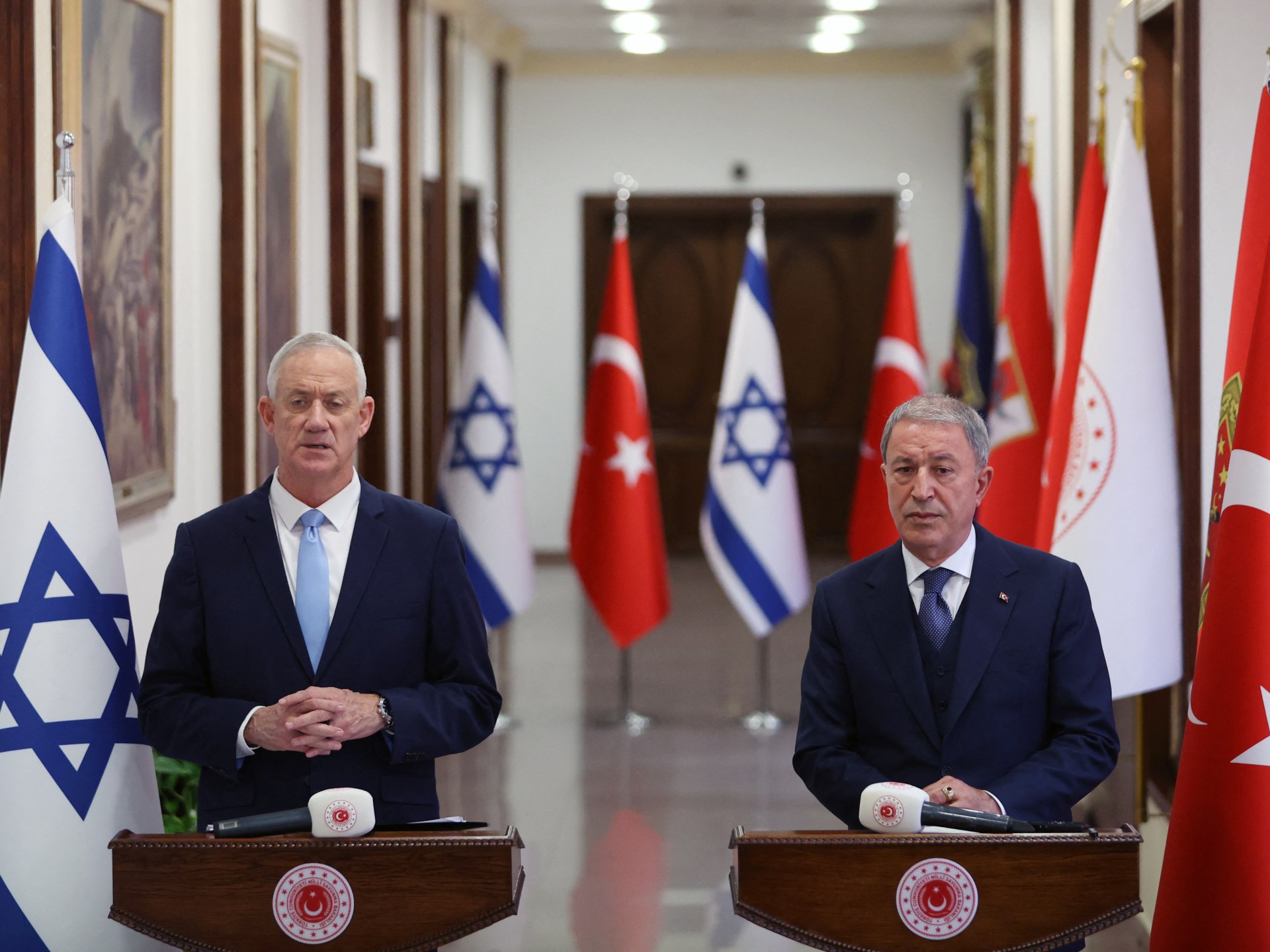‘LGBTQ toilet’ sparks fury in Turkey amid Pride week crackdown
A toilet in a luxury shopping mall in Istanbul is at the center of the latest battle pitting Turkey’s LGBTQ community against the country’s conservative government that rode to victory in last month’s presidential and parliamentary polls on the back of polarizing rhetoric targeting gays and other minorities.
The furor erupted last week after video footage was released of a bathroom door that was marked with a rainbow and unisex sign, igniting expressions of outrage on social media. Users called for a boycott of the Kanyon complex in Istanbul’s Sisli district. “We will not allow this to be normalized,” vowed one pro-government account in a typical reaction. “LGBT terror, which poses a global threat, is continuing to spread everywhere,” screeched Takvim, a pro-government propaganda outlet. Many also took particular umbrage at a pink neon sign in the English language on the toilet’s wall that said “THINK BIG.”
🔴 Şişli’de bulunan Kanyon Alışveriş Merkezi’nde LGBT’lilere özel tuvalet açıldığı ortaya çıktı. pic.twitter.com/1wcLuyh80u
— Daily Islamist (@dailyislamist) June 8, 2023
Owners of the restaurant USLA, which trains gourmet chefs and where the toilet was located, caved on Friday. They issued an apology and claimed there had been a “misunderstanding.” The cubicle has since been allocated to disabled people. In Ankara on the same day, police clashed with students at the prestigious Middle East Technical University as they assembled for a march to mark Pride week. Berkay Yildirir, an activist and a volunteer at KAOS GL, an advocacy group for LGBTQI individuals, was among more than a dozen students who were detained and roughed up by police. He got off lightly with a few bruises, but some others were badly beaten and had to be hospitalized, Yildirir said. “Police beat our friends in the head with their bare fists and their shields,” he told Al-Monitor.
One of the victims was a 21-year-old international relations student who is a regular at Pride rallies. Ilgaz Kekec said police put him on the ground, cuffed his hands behind his back and kicked him in the head “at least 20 times” after he refused to let them search his bag. The march never took place.
Pressure has been growing on LGBTQ activists in recent years in line with Turkish President Recep Tayyip Erdogan’s aggressive push to promote conservative Islamic values in society. The results are mixed. A recent survey by the International Institute of Islamic Thought revealed that piety is declining among young Turks, particularly among university students who advocate for secularism and LGBTQ and women’s rights more than any other of those polled.
It is therefore unsurprising that many LGBTQ clubs in universities have been shuttered under orders of the government in recent years, though some continue to operate under less-obvious names.
Since 2014, Pride parades have been formally banned in major cities, most notably in Istanbul where massive crowds would congregate unhindered. Today, police violence to disperse and prevent Pride marches is sanctioned by the Interior Ministry.
Throughout his election campaign, Erdogan lashed out at LGBTQ people, calling them “deviants” who spread like “the plague.” His pro-secular rival, Kemal Kilicdaroglu, was one of them, Erdogan claimed, and called homosexuality “a poison injected into the family.”
“When the hate speech comes from the top, it filters to the bottom, allowing police to use force against us and encouraging vigilantes to take the law into their own hands,” said Yildiz Tar, a gay activist and television commentator. Like many, he aired his worry that the government would push legislation targeting his community.
Unlike many Muslim-majority countries where same-sex relations and “imitating the opposite sex” are criminalized, in Turkey, they are not. Some of Turkey’s most revered stars are cross-dressers, such as the late singer Zeki Muren and Bulent Ersoy who broke fast with Erdogan at an iftar dinner in 2016. Indeed, it is frequently rumored that several members of the president’s inner circle dating back to his days as Istanbul’s first Islamist mayor in the early 1990s are either bisexual or gay. “Turkish society is far more liberal than it is credited with,” Tar said.
But there is a conservative backlash and it is by no means unique to Turkey. In Russia, Poland, the United States and Hungary, populist leaders are following a similar trajectory of whipping up homophobia. Even as Erdogan accused his political rivals of being moral degenerates, the opposition mayor of Ankara Mansur Yavas was berating him for allowing “a great number” of LGBT organizations to be established since his Justice and Development Party (AKP) rose to power in 2002 — some 14 of them, the mayor groused.
In September last year, thousands of people gathered in Istanbul’s Sarachane Park for “The Big Family Gathering” rally bearing placards that said “Say no to deviancy” and “Defend your family and lineage from the global gang.” Kursat Mican — president of a group called Unity in Thought and Struggle — who took the stage alongside kindred spirits from academia and other fields asked “Are you aware of the danger?” Sexual “deviancies” will lead to “the extinction of mankind,” he warned.
Müdafaa-i İslam Hareketi, Şampiyonlar Ligi Finali’nin oynanacağı Olimpiyat Stadyumu’nun etrafını Türkçe, İngilizce ve İtalyanca “Ailenizi ancak İslam korur.” afişleriyle donattı. pic.twitter.com/Ug7Qg5QvJL
— Islamist Agenda (@islamistagenda) June 10, 2023
Another Istanbul-based civic outfit calling itself the Defense of the Islamic Movement boasted on its Twitter feed that it put up thousands of flyers in foreign languages around Istanbul’s Ataturk Stadium on Saturday where the UEFA Champions League final between Manchester City and Inter Milan was played. The flyer depicts a family shielding itself from a rainbow with a giant umbrella and is captioned “Only Islam protects your family.”
Erdem Ozveren, president of the Defense of the Islamic Movement, complained that the AKP had so far taken no action against LGBTQI people. “They are lawfully setting up associations and conducting all kinds of activities. Since 2015 we as the Defense Movement, as a civil society organization, have been working to prevent this,” Ozveren told Al-Monitor. “We are a Muslim country. If homosexuality is forbidden in Islam, it ought to be forbidden in the country.”
Yildirir — the activist who served as an observer for the opposition at a ballot box during the May 14 elections — recalled how a fellow observer for the AKP sneered at his nail polish. The fellow observer told Yildirir, “The day will come when we will chop off those fingers of yours.”
“We will keep resisting,” the 24-year-old management student vowed. “But it’s getting harder by the day.”


